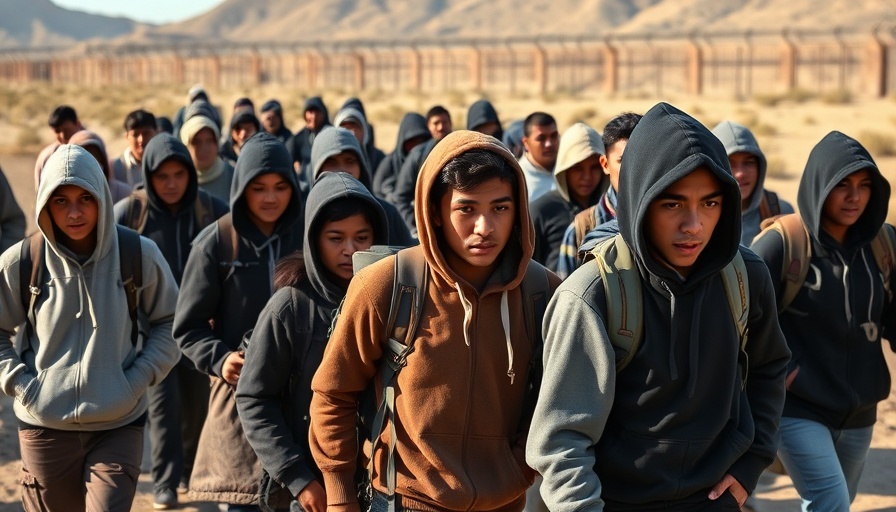
Understanding the Controversy Surrounding ICE’s Interrogation of Unaccompanied Minors
The spotlight is on a recent lawsuit that claims a secret policy has permitted Immigration and Customs Enforcement (ICE) to interrogate unaccompanied minors and their potential sponsors in the U.S. This case, initiated by Al Otro Lado, a San Diego-based organization, hints at a troubling intersection between immigration enforcement and the treatment of vulnerable children. The allegations raise serious questions about adherence to the best interests of minors, a principle that should guide all actions involving children under governmental care.
Al Otro Lado’s Legal Challenge: A Call for Transparency
Al Otro Lado’s lawsuit, filed in the U.S. District Court for the District of Columbia, aims to publicize documents related to this supposed secret policy. Cassandra López, the organization’s litigation director, emphasizes the obligation of the Department of Health and Human Services (HHS) to prioritize the well-being of children. Historically, HHS has refrained from sharing information about minors with ICE, establishing a protective boundary around the confidentiality of minors' cases. However, this lawsuit suggests that such practices are being undermined, leading to deportations stemming from interrogations conducted by ICE agents.
The Children’s Rights at Stake: Are We Protecting the Vulnerable?
When unaccompanied minors reach the U.S. border, they are to be placed under the care of HHS, particularly the Office of Refugee Resettlement (ORR). This procedural framework is designed to ensure their safety while they navigate the complex immigration system. However, the lawsuit claims a fundamental shift has occurred, putting these children's rights at risk. The alleged policy of allowing ICE to interrogate minors challenges the legal obligations that are meant to safeguard vulnerable populations from the rigors of immigration enforcement.
A National Concern: The Broader Implications of the Lawsuit
This legal battle is not just confined to a single organization or locality; it echoes across the U.S., symbolizing a nationwide crisis regarding how we handle unaccompanied minors. Reports of intimidation and evasion of protective protocols are alarming. As López has suggested, there appears to be a trend of ICE becoming increasingly involved with children, a practice that raises ethical dilemmas about best practices for child welfare.
Future Implications: What Lies Ahead for Immigrant Children?
The outcome of this lawsuit can set a precedent regarding the treatment of unaccompanied minors and their rights under U.S. law. A ruling that favors transparency and accountability may pave the way for stronger protections against immigration enforcement practices that jeopardize children. Alternatively, a ruling that supports the alleged secret policy could impose severe consequences, leaving children unprotected and vulnerable to deportation.
Conclusion: The Importance of Vigilance in Protecting Vulnerable Populations
The complexities surrounding the treatment of unaccompanied minors necessitate a vigilant approach from all stakeholders, especially those involved in their care. As this lawsuit unfolds, it is crucial for the public to stay informed and engaged with these critical issues that affect some of the most vulnerable members of society.
 Add Row
Add Row  Add
Add 




Write A Comment